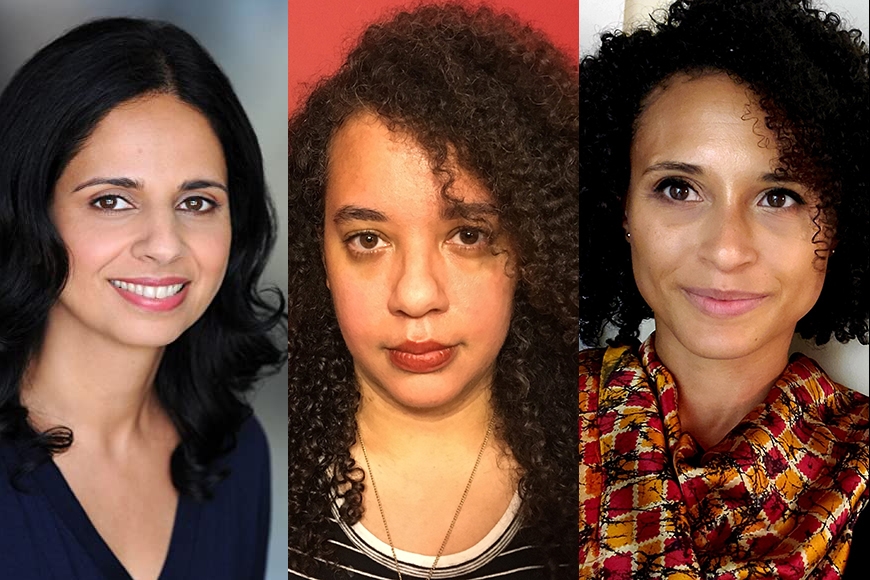New Professors in English
We are excited to announce that the Department of English will be welcoming three new faculty colleagues in 2022-2023. Aamina Ahmad and Megan Giddings will start fall 2022 in our Creative Writing Program. Jessica Horvath Williams will start in spring 2023. Welcome!
Aamina Ahmad is the author of the novel The Return of Faraz Ali (Riverhead), published April 2022. Her short fiction has appeared in One Story, The Southern Review, The Normal School, The Missouri Review, Ecotone, and the anthology And the World Changed. Her play The Dishonored was produced by Kali and toured the UK in 2016. She has received a Pushcart Prize and a Rona Jaffe Writer's Award.
Raised in London, Ahmad holds an MFA in fiction from the Iowa Writers' Workshop and received a Stegner Fellowship from Stanford University. She was Li-shen Visiting Writer at Mills College 2020-2021 and taught creative writing and English at San Jose State University.
Megan Giddings is the author of the novel Lakewood (Amistad, 2020), a Best Book of 2020 at New York Magazine and NPR, nominee for two NAACP Image Awards, and finalist for the 2020 LA Times Book Prize's Ray Bradbury Prize for Science Fiction, Fantasy, and Speculative Fiction. Giddings will publish the novel The Women Could Fly (Amistad) in August 2022. An essay of hers appears in The Lonely Stories, edited by Natalie Eve Garrett (Catapult, 2022).
In 2018, she was a recipient of a Barbara Deming Memorial fund grant for feminist fiction. Currently living in the Midwest, she holds an MFA from Indiana University-Bloomington. She has been a visiting assistant professor of Creative Writing at Michigan State University.
Jessica Horvath Williams earned her PhD in English Literature from UCLA in 2020, and is the co-chair of the Critical Disability Studies Collective at the University of Minnesota. She researches at the intersection of feminist disability studies and 19th-century US history and literature, with particular emphasis on domestic and slave labor and early eugenicist discourse. Her current project investigates how female ideality served as a precursor for the development of three ideologies commonly critiqued by critical disability studies: the individual responsibility for health, the absence of futurity for disabled people, and the role of wage labor in the construction of (dis)ability. Horvath Williams was a President's Postdoctoral Fellow for the Departments of English and Gender, Women, and Sexuality Studies.



